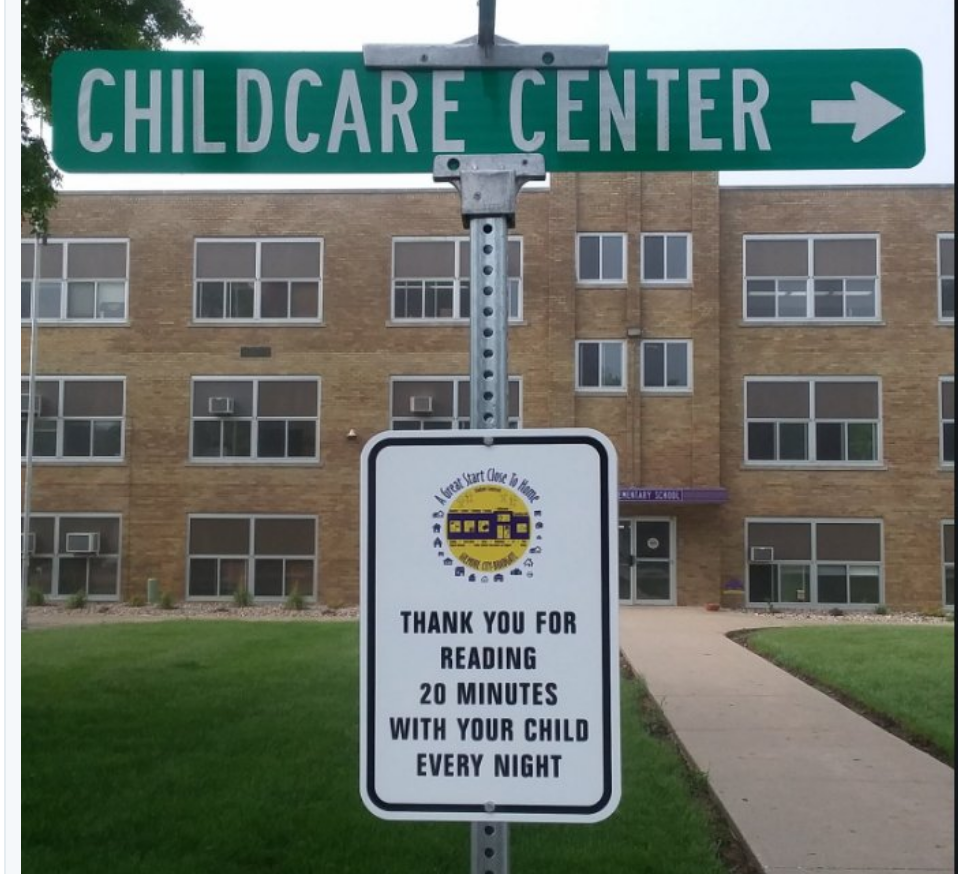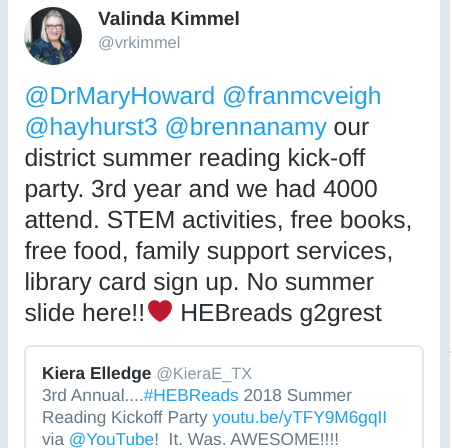By Fran McVeigh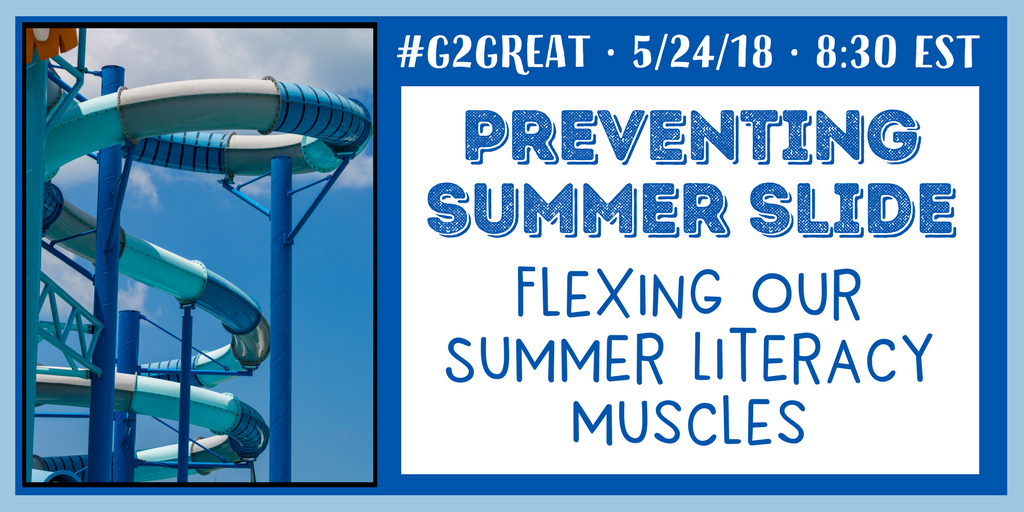 What does summer mean in your community? Is it about freedom from school routines or is it about supports in place to help families maneuver the tricky days and nights when parents need to work and children have more freedom? Our #G2Great chat on May 24, 2018 had both questions and answers for “Preventing Summer Slide” but also some cautionary reminders about remembering to meet the whole needs of children. “Summer Slide” is bigger than just literacy. In these days of declining school budgets and increasing demands, this may not seem feasible YET but let’s begin with some of those general considerations for increased collaboration and communication in your community.
What does summer mean in your community? Is it about freedom from school routines or is it about supports in place to help families maneuver the tricky days and nights when parents need to work and children have more freedom? Our #G2Great chat on May 24, 2018 had both questions and answers for “Preventing Summer Slide” but also some cautionary reminders about remembering to meet the whole needs of children. “Summer Slide” is bigger than just literacy. In these days of declining school budgets and increasing demands, this may not seem feasible YET but let’s begin with some of those general considerations for increased collaboration and communication in your community.
Have you considered these principles?
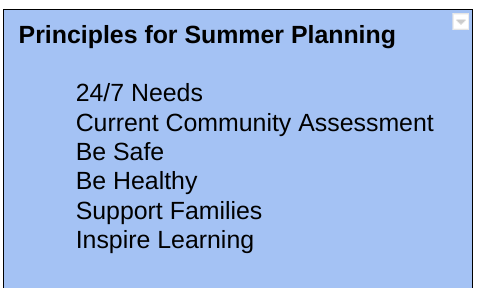
If your summer work is already planned, take a few minutes to think about the basic needs of the students in your community over the long summer break. Will they have adequate food, shelter and transportation? Will their basic physical needs be met? How do you know? What about their social-emotional needs? How will you know that your planned summer work is effective? What information will you be collecting from the participants and their families?
Preventing Summer Slide: What will it take?
I found two major goals/processes in this week’s chat. The first follows the research findings of Allington and McGill-Franzen. They found that providing books for students to read at home over the summer was both cheaper and more effective than summer school programs. (link) Ways to do that include:
- Giving students books
- Having school libraries open
- Teachers who continue to have book conversations during the summer
- Teachers loaning books
- Groups that give books
Any and all of these actions allow students to continue reading, flexing their literacy muscles. With high levels of practice, just like in sports, students maintain their current levels of confidence and competence. Students who read, write, and talk about their passionate and/or pleasurable literacy work increase the likelihood of counteracting “summer slide”. If any of this work can also involve partnerships formed in the student’s own household, there is an even greater likelihood of maintaining or increasing skills over the summer when one or two hours per week are dedicated to shared literacy actions like a narrated photo book of fun and play during the summer!
A second goal or process advocated for totally changing our approach to summer work is evidenced by this tweet.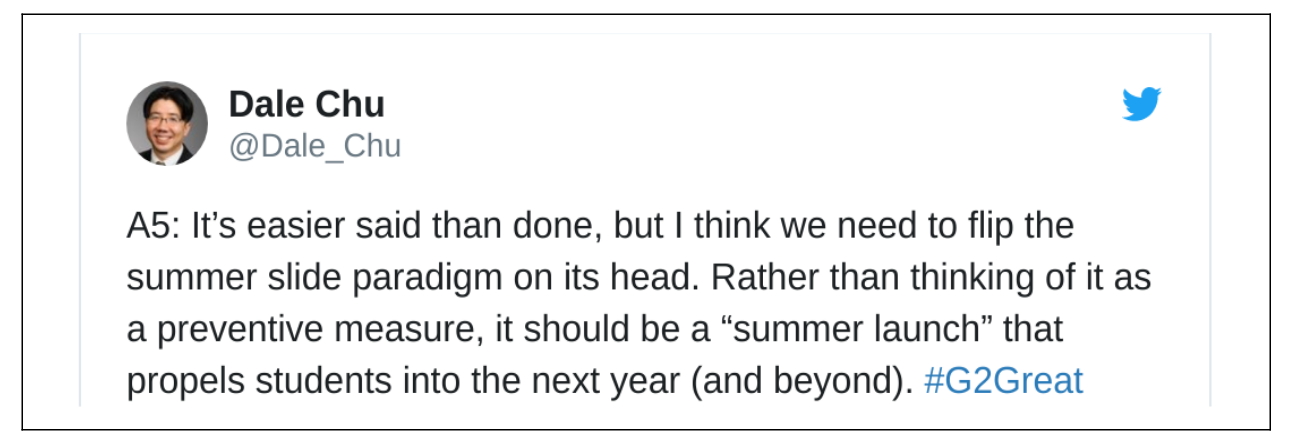
Would efforts be more effective if there was a deliberate plan to include the following components: community-based, culturally relevant, strength-based, family-centered and literacy-based in order to LAUNCH SUMMER LEARNING?
What would each of these elements look like?
Community-based
Capitalize on activities available through county parks and recreation offices, municipal music/arts/museum programs, and even explore “service options” with elderly housing units. Weekly bingo games with senior citizens can be a treat for students and seniors. Plan field trips to locations in the community. Set up a comprehensive schedule that builds on Red Cross swimming lessons or open gym sessions. Evidence of community-based efforts to promote literacy would include this sign posted in Gilmore City, IA and shared via @herz6kids.
Culturally relevant
Build relationships that cultivate strong culturally relevant interests and include teacher-student relationships that empower and motivate students. Check community calendars for meetings and events that provide cultural experiences. Promote peer teaching and learning relationships that may begin in books but further extend to face-to-face interactions.
Strength-based
Allow students to have choices in activities in terms of recreational activities and sports as well as reading, writing, speaking, listening, drama, and math activities. Build on what the students can do, want to do, and mirror the lives they see at home and in their neighborhood.
Family-centered
Build on strengths of the family by asking other members of their household to participate and respond to activities both at home and in the community. Create books of shared family stories and events. Encourage all family members to write about the same events from a different point of view. Collect recipes, songs, or poems to share with others.
Literacy-based
What if summer literacy-based work was about choice, wonder, passion, and not the same old routine from the school year? The use of Wonderopolis or independent choice would be one source of promoting joyful self-exploration that helps develop life long readers and writers.
For further information about a successful summer launch and summer program, check out this tweet from Valinda Kimmel.
“Summer Slide” was first reported in 1906, and folks have been searching for solutions ever since. There is NO, ONE single solution. It’s a complicated problem with many solutions that will assist students in maintaining or growing reading, writing, and learning. Collaborative partnerships will be necessary in order to provide optimal learning environments for all students. Considering novel solutions that involve new learning environments and opportunities to explore personal choice and wonder to this century old problem will allow students to thrive and not fall prey to the “summer slide.”
Selected tweets that were the source of ideas for this blog post: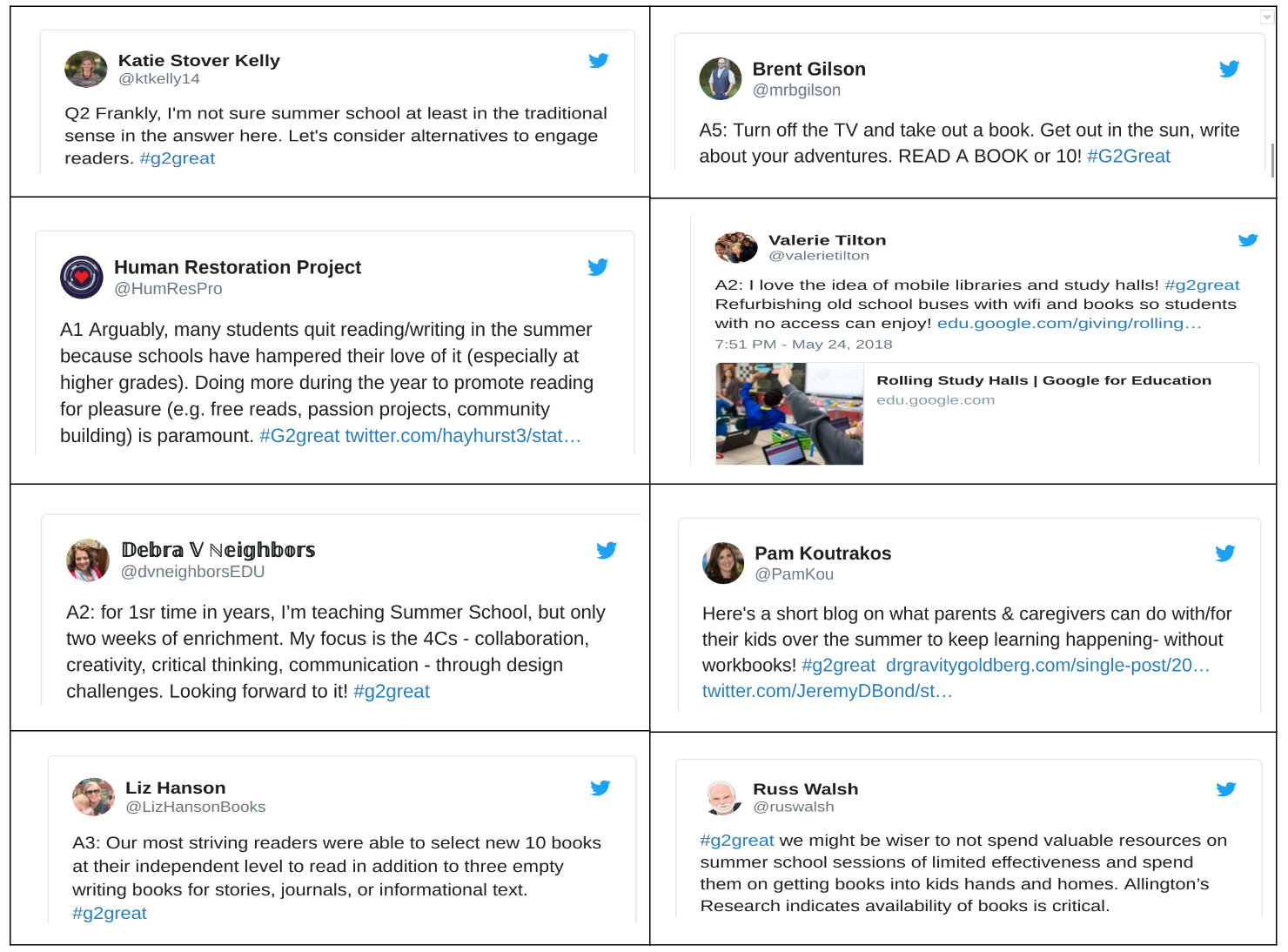
Additional Resources:
Wakelet archive for #G2Great chat – Link
Video – McAuliffe on YouTube (for parents) – Link
Allington- Summer Slide article Link
Pernille Ripp – “On Summer Checkouts”
Valinda Kimmel – “3 Surefire Ways to Avoid the Summer Slide”
NCTE Middleweb:
NOTES FROM THE NERDY BOOK CLUB Book Floods and Book Deserts
Donalyn Miller, Colby Sharp, Cindy Minnich, and Katherine Sokolowski
